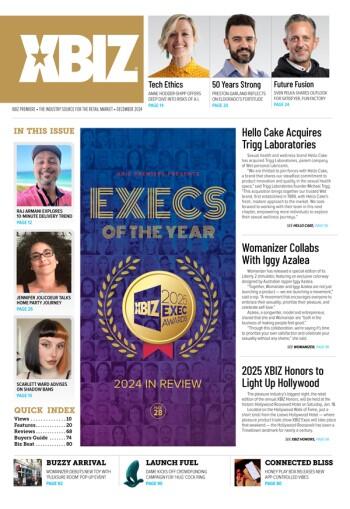In the end, it is the end users' experience that keeps them interested and not just content. Good content is critical; however, caution must be exercised to not overlook the quality of your users' experience, while focusing on the quality of your content. Ease of use, simplified navigation and clear and concise disclosure is what brings in new members while also keeping the members you have.
To be competitive in the new global market, one must be open to new ideas, embrace new technologies, and most importantly, realize that you no longer compete with just a few similar sites. You now must learn to compete against all forces that are vying for your users' dollars. Solo and amateur sites usually offer more than just content; they also allow the perception of a relationship with the talent. This increases the user experience and is a large part of the success of these sites.
In addition, revenue streams are expanded because of mainstream site resources that few adult sites still utilize. Lucrative, honest and consistent affiliate programs like Amazon.com's are now very common in the mainstream market. Advertising sales are used in lieu of banner trades while creating communities of common interest. Geo-targeted advertising increases the value and impact of those ads, and user profiling helps to better define the psychographics of their audience.
Targeting Customers
Understanding an audience is really what makes mainstream media really fly. A target audience is the group you want to reach or are already reaching. The mainstream market fully understands the buying habits and use trends of their target audience. They spend millions
on defining how to hit their target without wasting valuable time and resources. By surveying users, they can build upon a dynamic that is valuable, and with the use of online tools, make it more personalized. Information gathered is then compiled in order to design
plans that accommodate the largest request of users. The music industry uses many methods of tracking consumers, starting with radio play and in-store sales. From what they learn, they create. And better yet, often times this information can generate additional revenue
streams, as the reporting can be sold to industry analysts, research groups or to the content producers themselves.
One of the largest concerns the mainstream market has communicated to me regarding online deployment is simplicity of use. The feeling is, and I must concur, that if the deployment path is too difficult for the end user to use and too confusing to learn, then you will loose customers. Keeping business models simple is the key. If you are an idea factory, those ideas should be spread over a wider area of sites rather than trying to use all of your ideas on just one site. If the idea works on one site, then slowly introduce that idea to your other sites. If you are ready to build a video-on-demand site, then build it first and learn it well before you convert any other sites.
I believe that if we are to learn anything from the mainstream market it is from their attention to details, which could be a result of experiencing so many failures over the years. To market a mainstream product, extensive research is done, then tested and adjusted. It is a slow process of fine tuning by working on one element at a time, and only then moving to another. You don't tune all of the strings of piano at the same time and the same holds true with a finely tuned, web-centric presence.
The last and perhaps the best quality I see from the mainstream market is their vigilance to find qualified technology partners. The due diligence process the mainstream market takes is critical to its success and it is rarely based on the best price. It is always based on best practices, as their primary concern is that it works.
Technologies are engaged by limiting their resources to as few providers as they need; this is done by finding application services and software that cover the widest area of need from those resources. This may be a given to most, but I'm still surprised by how may clients I've seen that will piece together a product from as many low cost, low-end services they can find, with the idea of when they become successful, they will upgrade. Guess how many of those reach the level of success that allows them the option?
So, if I could offer any level of advice from my own personal years in the mainstream entertainment business, it would be to build for growth, understand your market and most importantly, learn the benefits of outsourcing so you can focus on your own core competencies — the most important of which is your focus on the details.







